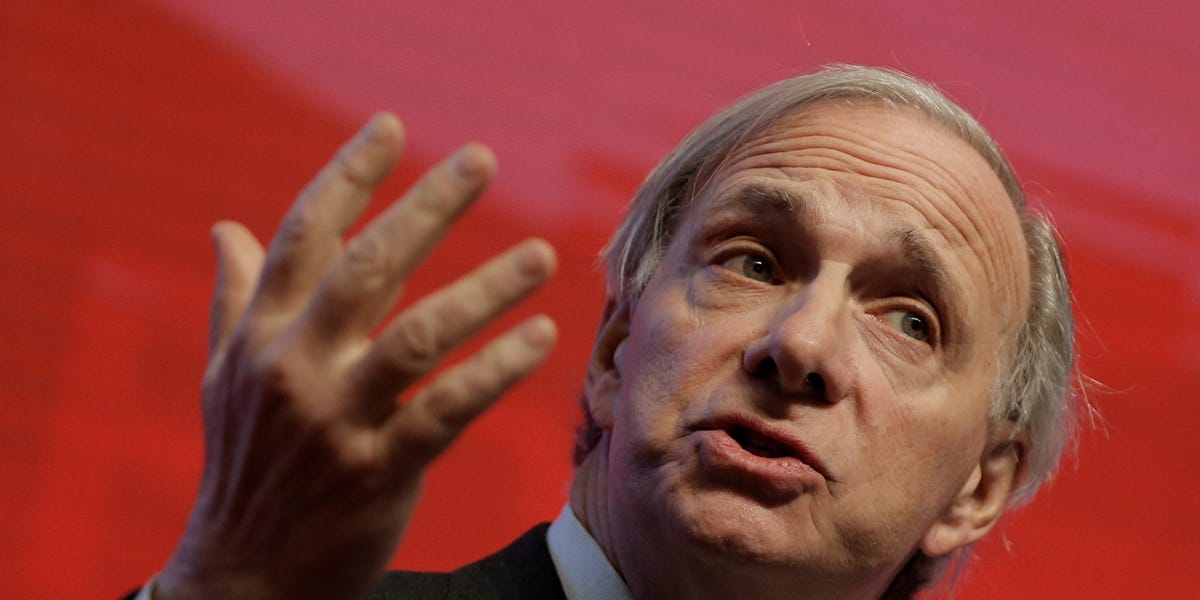- Ray Dalio of Bridgewater Associates is known for successful investing on a global scale.
- Dalio has been studying the rise and fall of empires, and warns that the US is in trouble.
- He says investors should stay balanced, consider the effects of inflation, and hold little cash.
Almost 50 years later, Ray Dalio still remembers his reaction to the news that the US would no longer allow dollars to be swapped for gold. He was sure it would be a disaster for markets.
But when he went to work at the stock exchange the next morning, markets soared after what amounted to a currency devaluation. The Dow Jones Industrial Average made its largest point gain ever. Dalio decided then and there that he needed to study history to make sense of what had happened — and make sure he wasn’t wrong-footed again.
“I learned to go back to past cases,” Dalio told Insider in an exclusive interview. “Studying, for example, the Great
Depression
, allowed me, and us, to predict the 2008 Financial Crisis and do well during it. We made a significant amount of money when most people lost.”
The founder and co-chief investment officer of Bridgewater Associates, the world’s largest hedge fund, recently turned his attention to even weightier matters than currency devaluations and recessions to address questions like why empires rise and fall and go to war.
That’s the subject of his new book, “Principles for Dealing with the Changing World Order.”
The book delves into the histories of the Dutch, British, and American empires over the last 500 years, with a focus on their currencies because they became the world’s reserve currencies. He also considers the Chinese, Indian, German, French, Japanese, and Russian empires.
Dalio concludes that all of them went through relatively predictable economic, debt, and political cycles, and that the empires themselves tended to decline after about 250 years. He says the combination of rising inequality, massive national debt, and a dysfunctional political system, combined with the rise of China as a rival, all spell trouble for the US.
He told Insider he wants people to be aware of history’s cycles and to understand the danger the country is in.
“We are at a critical juncture,” he said. “We will either overcome our differences and work together, or we will have some form of domestic civil war and/or external war,” he said.
Put another way, he says the most important factors that determine an empire’s health are its financial strength, its internal order, the rise of a competing power, acts of nature, and the human ability to innovate — which is the only thing that can overcome those challenges.
He argues that those challenges are getting more severe in the US while China is on the rise, with its citizens enjoying higher incomes and longer life expectancy than ever before.
“The places that I want to invest have the good income statement and balance sheets, they are behaving civilly with each other to be productive. And they have minimal risk of external war,” he said. “One has to grow the pie well, be productive, and divide the pie well, so that productivity and the benefits of it are for the majority of people.”
The scope of those threats makes diversifying that much more important, he says. He urges investors to make sure their portfolios are balanced and will bring in stable returns after inflation and taxes — two concerns that are becoming more pressing today.
“Balance brings about low risk without reducing returns,” he said of the approach he developed with Bridgewater’s All Weather Fund. “Diversification is the free lunch. “
He also recommends staying fully invested and avoiding cash.
“View cash as not the safest asset, but a very bad asset, because it has a very significantly negative yield relative to inflation. You will lose buying power,” he said. He explains that the
Federal Reserve
is going to have to keep interest rates low in order to keep printing money and producing debt, and investors will have to react.
“You have to pay attention to inflation and don’t view being safe as being in cash,” he said. “Instead, you can have a liquid and diversified portfolio of assets.”
